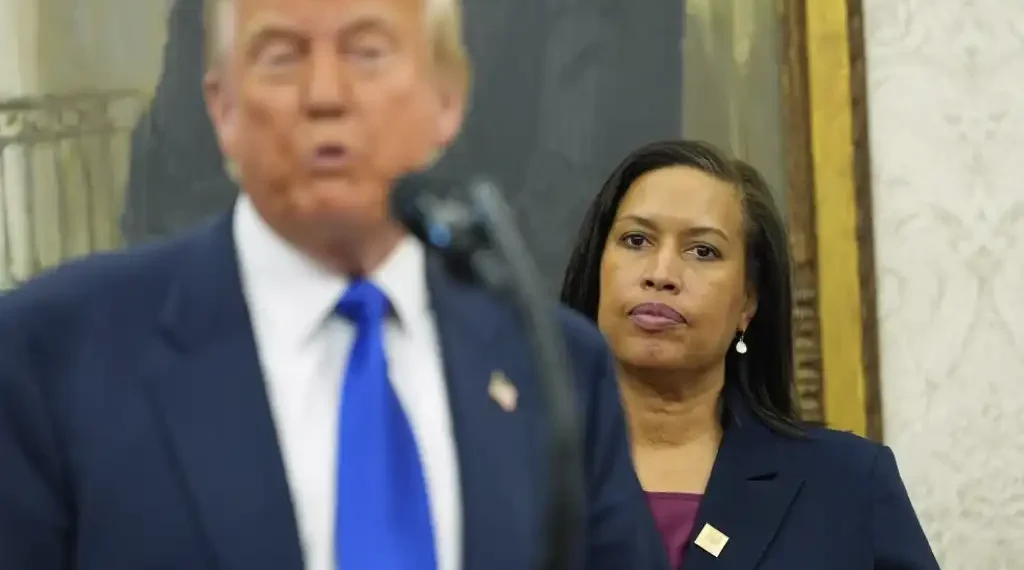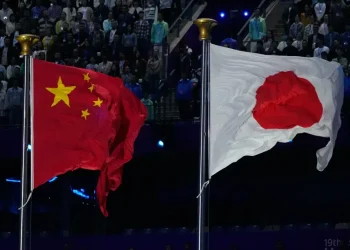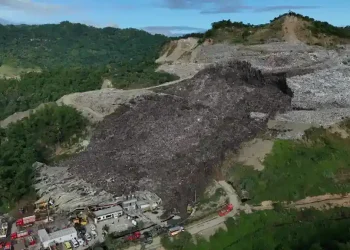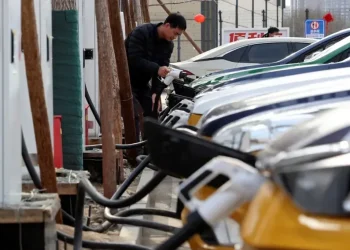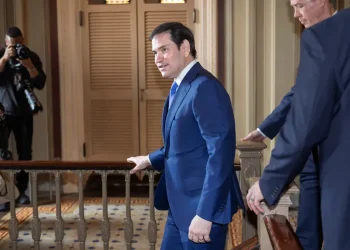DC Mayor Muriel Bowser Navigates Federal Power Shift Amid Trump’s Police Takeover
Published Time: 08-14-2025, 16:45
Washington, D.C., Mayor Muriel Bowser is treading a careful path in her response to President Donald Trump’s unprecedented takeover of the city’s police department and deployment of National Guard troops. While acknowledging the move as “unsettling,” Bowser is avoiding direct personal attacks, focusing instead on protecting the city’s residents and navigating the District’s unique political vulnerabilities under federal oversight.
Measured Response to Federal Intervention
National Guard troops began arriving in the capital this week following President Trump’s order to deploy 800 members as part of a crime crackdown. The move also temporarily places the Metropolitan Police Department under federal control — a rare and controversial step under the District of Columbia’s Home Rule Act.
In a press conference, Bowser called the federal takeover “unsettling and unprecedented” but stopped short of launching personal criticism against Trump. “While this action today is unsettling and unprecedented, I can’t say that, given some of the rhetoric of the past, that we’re totally surprised,” she told reporters.
Bowser added that her “tenor will be appropriate for what I think is important for the District” and emphasized that her priority is ensuring the city can take care of its citizens.
Unique Challenges of D.C. Governance
Washington, D.C., operates under a limited form of home rule established in 1973, granting local leaders some autonomy while allowing Congress — and by extension, the president — significant authority over city governance. This arrangement means the federal government can override local decisions, as it has in this instance.
Trump has repeatedly threatened to increase federal control over the city, a move made easier by Republican control of both chambers of Congress. Lawmakers have already frozen over $1 billion in local funds, cutting into the city’s budget and limiting its flexibility.
Political strategist Nina Smith noted that Bowser’s cautious approach reflects her vulnerable position. “This is the sort of thing that can happen when you don’t have the powers that come with being a state,” she said. “The mayor is navigating a very tough administration that has shown little restraint when it comes to constitutional norms.”
A Shift from Previous Confrontations
Bowser’s current strategy contrasts sharply with her confrontational stance during Trump’s first term. In 2020, amid nationwide protests over the death of George Floyd, she ordered “Black Lives Matter” painted in large yellow letters on a street near the White House — a direct challenge to Trump’s rhetoric at the time.
This time, Bowser met with Trump at Mar-a-Lago shortly after his election win and has sought to maintain a working relationship. She even removed the street mural after his return to Washington, following pressure from congressional Republicans.
Observers say the shift underscores the political reality of an emboldened president who is willing to push the limits of federal authority, particularly with Congress aligned behind him.
Limited Legal Options to Challenge Federal Control
D.C. Councilmember Christina Henderson said the legal grounds for challenging the federal takeover are slim. Trump invoked Section 740 of the Home Rule Act, which allows federal control for 30 days during a declared “crime emergency,” subject to congressional approval for extensions.
“The challenge would be on the question of ‘Is this actually an emergency?’” Henderson explained. While she doubts a lawsuit would succeed, Henderson suggested pursuing one anyway “just on the basis of precedent.”
Trump has indicated he may seek long-term extensions and could declare a national emergency if Congress does not approve additional time. “We’re gonna be asking for extensions on that, long-term extensions, because you can’t have 30 days,” Trump told reporters.
Balancing Cooperation and Caution
A source familiar with Bowser’s thinking said her approach is shaped by the city’s economic and political realities. D.C. is home to thousands of federal employees, and mass layoffs in recent months have already affected the local economy.
Bowser is reportedly prioritizing areas where cooperation with the Trump administration is possible. On Wednesday, she told Fox 5 that she was focused on “making sure the federal surge is useful to us.”
Police Chief Pamela Smith also welcomed the extra manpower, noting that the department is operating with nearly 800 fewer officers than needed. “The extra presence is clearly going to impact us in a positive way,” Smith said.
Calls for a Stronger Stance
Despite these arguments, some Democratic strategists believe Bowser should take a tougher line. “How many times is it going to take before she realizes this is not someone who has got the best interests of the city at heart?” asked Nina Smith. “There may need to be a time for her to push back.”
The debate comes against a backdrop of declining violent crime rates in the city. Data from the Metropolitan Police Department shows that violent crime has fallen by 35% since 2023, reaching the lowest level in three decades, according to a recent Department of Justice report.
Looking Ahead
As the situation unfolds, Bowser faces the challenge of defending the city’s limited autonomy while managing the practical benefits — and potential risks — of a federal law enforcement surge. The coming weeks will determine whether her strategy of cautious cooperation will preserve stability or invite further federal encroachment.
This article was rewritten by JournosNews.com based on verified reporting from trusted sources. The content has been independently reviewed, fact-checked, and edited for accuracy, neutrality, tone, and global readability in accordance with Google News and AdSense standards.
All opinions, quotes, or statements from contributors, experts, or sourced organizations do not necessarily reflect the views of JournosNews.com. JournosNews.com maintains full editorial independence from any external funders, sponsors, or organizations.
Stay informed with JournosNews.com — your trusted source for verified global reporting and in-depth analysis. Follow us on Google News, BlueSky, and X for real-time updates.
